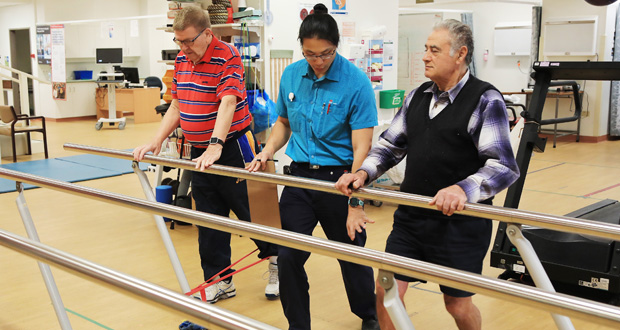A hospital in Sydney’s west has launched a scheme aimed at reducing the stress and pain of osteoarthritis.
Described as a ‘one-stop shop’, the Osteoarthritis Chronic Care Program (OACCP) at Auburn Hospital allows patients to see a range of different clinicians in a single appointment, avoiding multiple hospital visits.
Osteoarthritis currently affects one in 11 Australians, two-thirds of whom are female. One in four Aussies with the condition also report having fair or poor health: twice as many as those without the condition.
Although it affects all ages, the instance of the condition rises sharply after age 45, and 35 per cent of people aged 80 and above have the condition.
Carolyn Aiken, 53, has been suffering from osteoarthritis for 15 years and believes she will need surgery in the long run.
“It was more convenient for me having them all there, not needing to run around making different appointments with all the specialists,” Aiken said.
“It’s definitely a step ahead in medical practice, especially in the public system, to see the teams working together and coming up with more holistic treatments instead of just medication or surgery.”
Rheumatology advanced trainee Dr Beverly Ng said the clinic is a “one-stop shop” for people to receive intervention from a medical, physiotherapy and dietetic perspective.
“Two things that have been shown to be beneficial are weight loss and strengthening the thigh muscles, but patients may not have been shown how to do that in a structured way,” Ng said.
Those treated in the new program will have follow-ups after their initial consultation at three, six and 12 months. Ng said the program also involves understanding patients’ mental health and the impact of the condition on their quality of life, as part of a holistic approach to care.
“The objective is to optimise osteoarthritis care through less invasive measures, such as lifestyle changes, while patients are waiting for surgery. There’s the potential to get patients off the surgery list with symptom management and improvement in quality of life,” Ng said.
Do you have an idea for a story?Email [email protected]
 Aged Care Insite Australia's number one aged care news source
Aged Care Insite Australia's number one aged care news source

